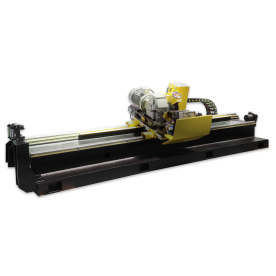[Pipe mill production line with quality control measures]Ensuring Quality Control Measures in Pipe Mill Production Line: A Comprehensive Approach
News 2024-5-13

Ensuring Quality Control Measures in Pipe Mill Production Line: A Comprehensive Approach
One of the key aspects of quality control in a pipe mill production line is the monitoring and inspection of raw materials. This includes ensuring that the steel used for manufacturing pipes meets the required specifications in terms of chemical composition, mechanical properties, and dimensional tolerances. By conducting thorough material testing and verification processes, manufacturers can prevent the introduction of substandard materials into the production process, which can lead to defects in the final product.
In addition to material quality control, manufacturers must also focus on controlling the manufacturing process itself. The production line must be equipped with the latest technology and machinery to ensure precision and consistency in the production of pipes. Automated systems can help in minimizing human errors and variability, resulting in a more uniform and high-quality product.
Furthermore, regular maintenance and calibration of machinery are essential to prevent downtime and ensure the accuracy of production processes. Any deviations or abnormalities in the production line must be promptly identified and rectified to maintain the quality standards of the pipes being manufactured.

Ensuring Quality Control Measures in Pipe Mill Production Line: A Comprehensive Approach
Moreover, dimensional inspection tools, such as laser scanners and coordinate measuring machines, are used to ensure that the pipes adhere to the specified dimensional tolerances. Any pipes that do not meet the required quality standards should be identified and segregated to prevent them from being shipped to customers.
To further enhance quality control measures, manufacturers can implement statistical process control (SPC) techniques to monitor and analyze the variability of production processes. By collecting and analyzing data on key process parameters, manufacturers can identify trends, detect anomalies, and implement corrective actions to improve the overall quality of the pipes being produced.

